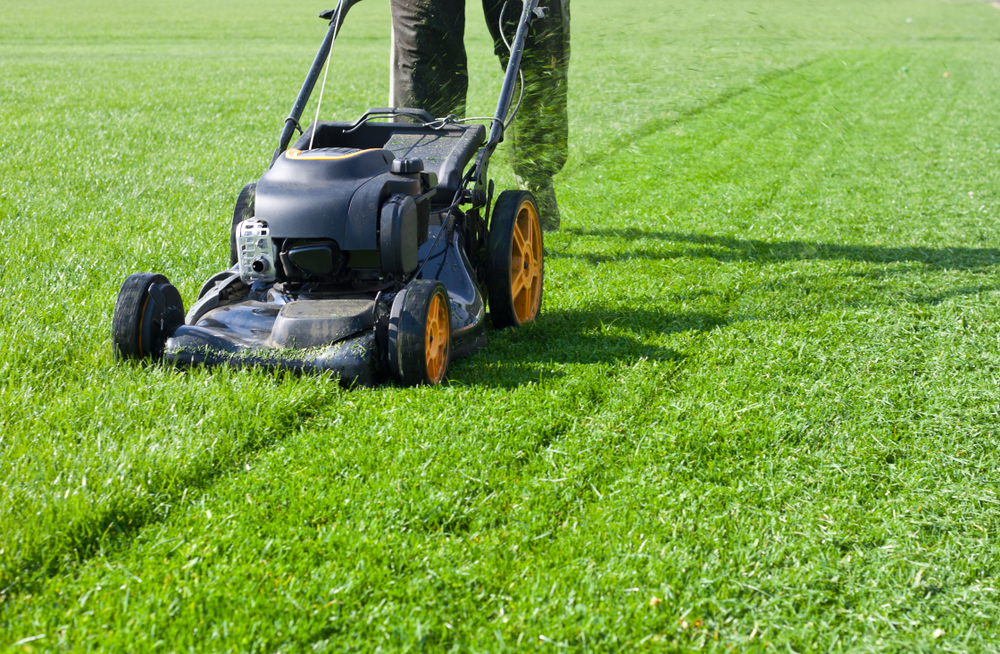Benefits of Mulching Grass
When it comes to maintaining a healthy and vibrant lawn, mulching grass is a practice that can provide numerous benefits. In this article, we will explore the advantages of mulching grass and how it can help you achieve a lush and beautiful lawn.
Retains Moisture
Mulching grass acts as a natural barrier that helps retain moisture in the soil. By covering the soil surface with a layer of organic mulch, such as grass clippings or shredded leaves, you can prevent evaporation and reduce water loss. This is particularly beneficial in dry climates, where water conservation is crucial.
Controls Weed Growth
One of the key benefits of mulching grass is its ability to suppress weed growth. Mulch acts as a protective layer that prevents weed seeds from germinating and reaching the sunlight they need to grow. By inhibiting weed growth, mulching reduces the competition for nutrients, water, and sunlight, allowing your grass to thrive.
Improves Soil Health
Mulching grass contributes to the overall health of your soil. As the organic mulch breaks down over time, it adds valuable nutrients to the soil, improving its fertility. Additionally, mulch acts as insulation, regulating soil temperature and protecting it from extreme heat or cold. This creates a favorable environment for beneficial soil organisms, such as earthworms, to thrive.
Prevents Soil Erosion
Another advantage of mulching grass is its ability to prevent soil erosion. The layer of mulch acts as a protective barrier against heavy rain or strong winds, reducing the risk of soil being washed away or blown off. This is particularly important in sloped areas where erosion is more likely to occur.
Enhances Aesthetic Appeal
Mulching grass not only provides practical benefits but also enhances the aesthetic appeal of your lawn. A well-mulched lawn looks neat, with a consistent and uniform appearance. The mulch also helps to highlight the vibrant green color of the grass, making your lawn visually appealing.
Encourages Earthworm Activity
Earthworms play a vital role in maintaining healthy soil. They aerate the soil, allowing better water and nutrient penetration, and break down organic matter, releasing essential nutrients for plant growth. Mulching grass attracts earthworms to your lawn, creating a favorable environment for their activity and benefiting the overall soil health.
Reduces Lawn Maintenance
By mulching grass, you can reduce the amount of time and effort required for lawn maintenance. Mulch acts as a natural weed barrier, reducing the need for manual weed removal or chemical herbicides. It also helps to regulate soil moisture, reducing the frequency of watering. With mulching, you can spend less time on maintenance and more time enjoying your beautiful lawn.

Mulching grass offers a wide range of benefits for your lawn. From retaining moisture and controlling weed growth to improving soil health and preventing erosion, mulching is a practice that can transform your lawn into a lush and thriving landscape. By incorporating mulching into your lawn care routine, you can enjoy a beautiful and low-maintenance lawn all year round.
Frequently Asked Questions about the Benefits of Mulching Grass
1. What is mulching grass?
Mulching grass refers to the practice of leaving grass clippings on the lawn after mowing instead of collecting and disposing of them.
2. What are the benefits of mulching grass?
Mulching grass provides several benefits including:
Improved soil moisture retention
Reduction in weed growth
Enhanced nutrient recycling
Protection against temperature fluctuations
Promotion of a healthier lawn
3. How does mulching grass improve soil moisture retention?
The grass clippings act as a natural mulch, helping to retain moisture in the soil by reducing evaporation.
4. Can mulching grass help reduce weed growth?
Yes, mulching grass can help suppress weed growth by blocking sunlight and preventing weed seeds from germinating.
5. How does mulching grass enhance nutrient recycling?
When grass clippings decompose, they release nutrients back into the soil, providing a natural fertilizer for the lawn.
6. Does mulching grass protect against temperature fluctuations?
Yes, the layer of grass clippings acts as insulation, helping to regulate soil temperature and protect the roots of the grass from extreme heat or cold.
7. Can mulching grass promote a healthier lawn?
Absolutely! Mulching grass can improve the overall health of the lawn by providing essential nutrients, reducing stress on the grass, and encouraging deeper root growth.
8. Should I use a specific type of mower for mulching grass?
Using a mulching mower with specialized blades is recommended for optimal mulching performance. These mowers are designed to finely chop the grass clippings and distribute them evenly on the lawn.
9. Are there any situations where mulching grass may not be suitable?
Mulching grass may not be suitable if the lawn is excessively overgrown, or wet, or if there is an excessive amount of thatch buildup. In such cases, it is better to collect and remove the clippings.
10. How often should I mulch the grass?
Mulching grass can be done every time you mow the lawn, as long as the grass height is within the recommended range. Regular mulching helps maintain the benefits and keeps the lawn healthy.




